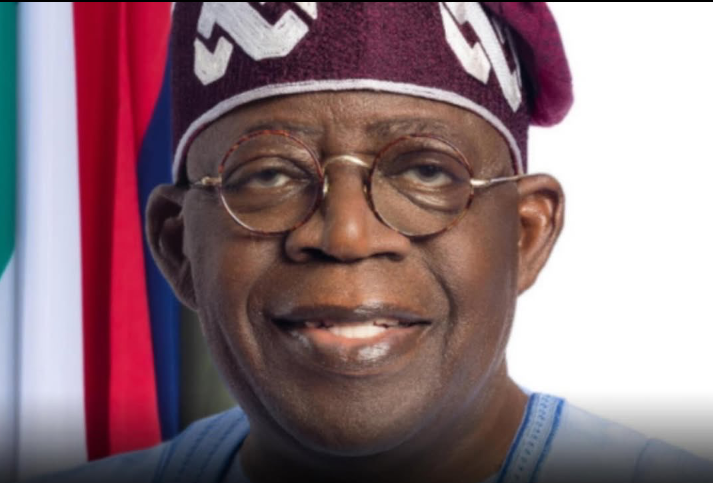

President Bola Ahmed Tinubu has made a powerful appeal to world leaders, urging them to classify the theft of mineral resources through illegal mining and smuggling as an international crime. Speaking passionately at the 7th Annual General Assembly of the Network of Anti-Corruption Institutions in West Africa (NACIWA), held in Abuja, the President warned that the illegal exploitation of Africa’s abundant natural resources has evolved into a major global threat that fuels economic instability, corruption, and insecurity across the continent.
Tinubu lamented that billions of dollars are lost annually through illegal mining activities, mineral smuggling, and illicit trade networks that operate with impunity. According to him, these crimes are not only robbing African nations of their rightful wealth but are also funding widespread insecurity, kidnappings, terrorism, and banditry. He stated that the continent can no longer afford to treat resource theft as a local issue, insisting that it should be recognised and prosecuted as an international crime under global law.
“The stealing of our countries’ mineral resources should no longer be treated as a local issue. It is an international crime that undermines peace and stability,” Tinubu declared, his tone firm as he addressed representatives from ECOWAS member states, anti-corruption agencies, and international partners. He explained that illegal mining and resource theft are part of a complex transnational web that involves local collaborators, foreign buyers, and international criminal networks that launder stolen wealth through global financial systems.
The President called for urgent and coordinated action within the Economic Community of West African States (ECOWAS) and beyond, to establish stronger legal and institutional frameworks that criminalise illegal mining and resource theft. He urged member nations to collaborate in intelligence sharing, joint border operations, and cross-border asset recovery efforts, adding that such cooperation is essential to dismantling the networks that profit from Africa’s natural resources while leaving behind environmental degradation and social unrest.
Tinubu emphasised that corruption and weak governance structures have long made Africa vulnerable to exploitation. He noted that while the continent is rich in gold, lithium, oil, and other critical minerals essential for global industries, the benefits of these resources rarely reach the people. “The paradox of Africa is that we are rich in resources but poor in development. Our minerals are used to power industries abroad while our people remain in poverty. This injustice must end,” he stated.
The President disclosed that his administration has intensified efforts to trace, recover, and reinvest proceeds from corruption and illicit financial flows. He revealed that Nigeria has channelled more than ₦100 billion from recovered funds into key social intervention programmes such as the Student Loan Scheme and the Consumer Credit Scheme. According to him, these initiatives are designed to empower citizens and demonstrate that recovered assets can be transparently and effectively used for national development.
Tinubu also highlighted the critical role of technology and data-driven governance in curbing resource theft. He explained that his administration is investing in modern surveillance systems, digital tracking of mining operations, and transparent licensing procedures to ensure accountability in the extractive sector. “We must move away from opaque systems that enable corruption. Transparency is our strongest weapon in this fight,” he said.
Addressing the international community, Tinubu appealed for the establishment of a global convention against resource theft, similar to existing international treaties against drug trafficking, human trafficking, and terrorism financing. He argued that the world cannot continue to turn a blind eye while Africa’s resources are looted by criminal syndicates with global reach. “Those who profit from the destruction of our environment and the theft of our mineral wealth must be held accountable under international law,” the President stressed.
He warned that failure to act decisively would only embolden criminal networks and deepen inequality between resource-rich African nations and industrialised countries that benefit from illicit mineral flows. Tinubu pointed out that the proceeds from illegal mining often fund violent groups and fuel instability in regions already struggling with weak governance, youth unemployment, and poverty. “We must connect the dots — illegal mining is not just an economic crime; it is a security threat, a development challenge, and a human rights issue,” he declared.
The President commended NACIWA for its continuous efforts in promoting anti-corruption collaboration among West African nations, describing the network as a crucial platform for sharing best practices and building regional resilience against corruption and illicit trade. He also called on member countries to strengthen their institutions, ensure judicial independence, and empower anti-corruption agencies with the resources and political backing necessary to pursue powerful interests involved in mineral theft.
Tinubu’s message resonated with the gathering, which included representatives from the African Union, United Nations agencies, and international financial institutions. Many participants acknowledged that the President’s call reflects a growing consensus that the exploitation of Africa’s resources cannot continue unchecked. Analysts say his proposal for a global convention against resource theft could reshape how international law addresses transnational economic crimes and protect developing nations from systemic plunder.
Observers note that Tinubu’s stance aligns with Nigeria’s broader push for economic sovereignty and regional stability. The country has been grappling with widespread illegal mining, particularly in gold-producing states like Zamfara and Niger, where criminal groups have profited immensely from unregulated extraction. Nigerian authorities estimate that the nation loses billions annually to illegal mining activities, with proceeds often funding arms purchases and organised crime.
As global demand for critical minerals continues to rise — driven by the transition to green energy and the production of electric vehicles, smartphones, and batteries — Africa’s mineral-rich nations are under increasing pressure to secure their resources. Tinubu’s call is therefore seen as both timely and strategic, positioning Nigeria as a leading voice in the fight for fair and transparent resource governance on the international stage.
The President concluded his address with a rallying message of unity and accountability, reminding African leaders that no single nation can combat this crisis alone. “No nation can win this fight alone. We must build stronger partnerships and ensure that those who profit from our collective wealth face justice,” he said. He urged all countries to stand together in defending Africa’s natural heritage, not just for present generations but for the future of the continent.
As the Abuja meeting closed, delegates echoed Tinubu’s call, pledging renewed commitment to cross-border cooperation and transparency in resource management. Whether the world will heed the Nigerian leader’s demand for a global legal framework against mineral resource theft remains to be seen, but his message was unmistakable — the era of silently watching Africa’s wealth vanish into foreign hands must end.


